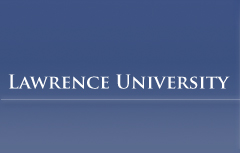Document Type
Honors Project
Publication Date
6-14-2022
Abstract
In early seventeenth-century Europe, the lines separating theology, science, and humanism were thin; what the modern reader understands as three distinct spheres of knowledge considerably overlapped with one another. Scientific discoveries and innovations coming from new technologies and foreign lands were laden with implications about theology and the human condition. While bland to all but the most fringe historians of mathematics today, the discovery of negative numbers led to a passionate and occasionally fierce epistemological debate throughout Europe. Falling outside of traditional mathematical knowledge, negative numbers found themselves in a sort of existential limbo; however useful they proved themselves to be, their reality was regularly denied by the united forces of antiquity, Catholicism, and contemporary mathematics. In their efforts to share their new discoveries while constrained by these pressures, Early Modern mathematicians like Albert Girard were implicitly required to serve as mediators in order to formalize and publish their discoveries. While his pamphlet A New Discovery in Algebra seems to be full of contradictions, evasions, and ambiguities, these apparent oversights were in fact tools that allowed Girard to maneuver around obstacles which hampered the spread of discoveries among Europe’s developing community of mathematicians.
Level of Honors
cum laude
Department
History
Department
Mathematics
Advisor
Edmund Kern
Recommended Citation
Wilmes, Ethan, "An Absence of Elephants in the Room: Religion, Philosophy, and Negative Numbers in Albert Girard’s A New Discovery in Algebra" (2022). Lawrence University Honors Projects. 171.
https://lux.lawrence.edu/luhp/171
